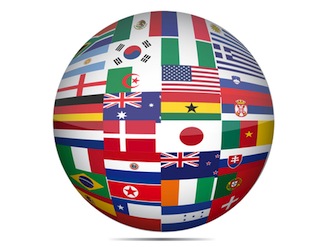Investing
Will these three equity markets be surprise winners in 2013?

While the FTSE 100 and major US indices
have got off to a flying start in 2013, others have struggled to make gains, but which ones look set to catch up?
The FTSE 100 and the S&P 500, for example, have risen 8% and 6.5% respectively year to date, as money continues to flow into equities as investors search for yield.
Looking back further, over the last nine months the FTSE 100 has risen 21% after falling to 5,260 following May’s sell-off, while the S&P 500 gained 19% over the same period.
However, while these developed market equities have climbed to multi-year highs, many overseas indices have lagged the bounce back and remain well off highs.
Wealth managers have identified what they see as the best equity market opportunities in which to invest now, as other indices start to climb following better than expected growth in countries such as the US.
Here are three of wealth managers’ top picks:
China
Adrian Lowcock, senior investment manager at Hargreaves Lansdown, is backing Chinese equity markets to make up for some lacklustre returns over the last three years.
“Economic data shows early signs the Chinese have avoided a hard landing,” he said.
“China has now surpassed the US as the world’s largest trading nation adding yet another accolade to its growing list. The country has started the transition from a manufacturing exporter to a more developed consumer economy, a process which was never likely to be smooth.
“Restrictions on foreign companies directly investing in China are slowly being lifted, and in addition GDP growth at 7.8% appears to have reached a bottom.”
Lowcock said investors have been put off investing in Chinese equities since the financial crisis, but now valuations are very attractive.
“Prior to the crisis, China was expensive, but it is now looking more favourable compared to other Asian markets. Today the P/E ratio for the MSCI China is 8.5, which is attractive relative to historical levels,” he said.
“It was last at these levels in 2000 shortly after the dotcom bubble burst, and prior to that in 1997 following the Asian crisis.”
China’s A-share market (denominated in its own currency) has barely moved over the last nine months, posting a gain of 3.4%, although investors in the US-dollar denominated B-share market have enjoyed better returns, on a par with the US and UK markets.
Brazil
Peter Lowman, CIO at Investment Quorum, argues Brazil looks to be one of the most attractively valued equity indices at the moment, following a move lower since the start of the year.
The Bovespa index is off around 6% so far, and on a nine-month view this recent dip has eroded gains to leave it around 9% higher, well off previous highs and behind other markets.
Lowman said: “Unfortunately, from an investment perspective, global events over the past few years have created some real problems in both the developed, and developing world, and Brazil has been no exception.
“While unemployment in the country has been shrinking, its economy has remained fairly fragile and weak, growing much less than was expected.”
Inflation has also reared its head and hammered sentiment in the country.
Lowman added: “The recent rise in inflation could lead to higher interest rates, not good for stock market sentiment.
“Many of Brazil’s leading quoted companies such as Vale and Petrobras have already fallen heavily over the past 12 months, with the Bovespa index giving investors a clearer indication of the extent of the fallout in the Brazilian stock market.”
Out of favour sectors such as energy – a key driver of Brazil’s equity market – have pushed it lower in recent months, and given it is heavily skewed towards commodities, the China slowdown has been particularly painful for the country.
However, while Brazil’s stock market still faces headwinds, Lowman said investors who buy in at current levels could be well rewarded in 2013 if Chinese growth picks up and commodity demand rises.
“Certainly, their domestic economy, and stock market, still seems to be facing some nasty headwinds, but if the global economy were to pick up, and the commodities super cycle is still intact, then as China begins to restock countries such as Brazil are more likely to benefit,” he said.
“This in turn could lead to a stock market recovery in the Bovespa index.”
Japan
The land of the rising sun has actually kept pace with the recovery in Western equity markets over the last nine months, with the Nikkei 225 rising 16.6%.
However, on various ratios it remains cheaper than peers, and Darius McDermott, managing director of Chelsea Financial Services, argues it could still climb further if a weak yen boosts exports.
“Even after the strong year to date rally, it is cheaper on a price to book ratio than all the other major markets,” he said.
“There is a new prime minister who is targeting inflation and lowering the yen, and this is good for exporters. The weakening yen will also give a boost to return on equity for Japanese companies, while financials should also benefit from the currency’s weakness.
McDermott added the country’s equity markets may get a further lift from internal investment as government pension funds buy in to Japanese equities.